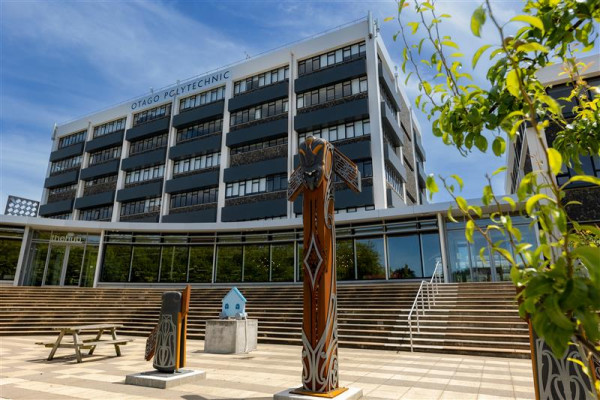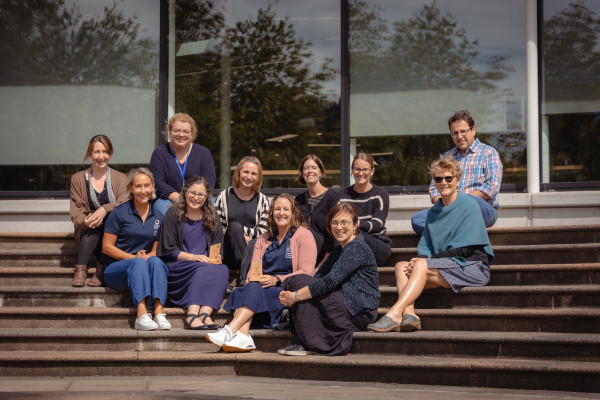- Tūhono home Hoki ki Tūhono
-
- Staff Directory
- Chief Executive Office Auckland International Office Corporate Services Finance Campus Services Functions and Catering Information Systems and Support Marketing, Communications and Engagement Learner Journey Academic Registry International Learner Services Te Punaka Ōwheo
- Learner Experience Academic Excellence Central Campus College of Community Development and Personal Wellbeing College of Engineering, Construction and Living Sciences College of Health College of Work Based Learning Open Education Resource/OERu Research and Postgraduate Studies Te Maru Pumanawa | College of Creative Practice and Enterprise
- Māori Development and Kaitohutohu Office People, Culture & Safety People and Culture Childcare Centre Te Ama Ako | Learning and Teaching Development Wellbeing and Safety Auckland Staff Directory Executive Office Academic Corporate Services Marketing and Business Development Human Resources Campus Quality and Programme Development
-
 Our people make a better world
Our people make a better world
We build the capabilities of individuals, organisations and communities and help them to realise their potential.
Staff Directory
-
- Tools
- Academic Integrity Declaration Form AIC Applications Dashboard Approved Programmes Approved Programme Fees Centralised Assessement Repository Chemwatch CMS - Tūhono & StudentHub updates Course Evaluation and Surveys CRM Applications CRM customer service hub Delegations policy/process Disability and Neurodiversity Dynamics 365 (CRM) EBS Ontrack EBS Report Email Security Personal Portal Employment Matters / Solarworkplace / Performance Reviews eTaxi eTV
- Financial Variance Reporting Hidden Disabilities Sunflower programme FCM travel intranet InPlace International entry requirements Knowledgebase articles Learner Support Dashboards Linkedin Learning Log a job with Marketing Login as an applicant Microsoft 365 Moderation App Moodle OP Docs OP Docs - Publishing OP Image Libraries Performance Excellence Portal Product Evaluation Panel
- Policy Library Privacy Programme and Course Design and Development Qualtrics XM RDS Remote Access Support Portal Research Database Robertson Library Staff FAQs about Graduation Status of Programmes Student Hub (Kāpehu demonstration view) Study Abroad info for learners Tūhauora I Wellbeing resources Uniprint Vault Webexpenses Auckland Tools
-
 Vault
Had an accident or near miss?
Log it here
Vault
Had an accident or near miss?
Log it here
-
- Communities
- Community AI Steering Committee Ally Network EBS Community of Interest EdTech Champions Health & Wellbeing Research Internal Evaluation Neurodiversity Professional Team Professoriate Proud@OP Student Support Website Advisory Group Web Champions Working under the Rainbow Project Learner Capability Trade Training Centre
- Committee Academic Committee Animals@OP Diversity and Equity Doctor of Professional Practice Committee Kaunihera Whakahaere - Leadership Council Internal Evaluation Learning & Teaching Leadership Team Library Committee Mental Health and Wellbeing Advisory Group Otago Polytechnic Board of Directors Pastoral Care Code Committee Programme Approvals Committee Research and Postgraduate Committee Research Ethics Committee Staff Subcommittee
- Think Tanks Mātauraka Our learners achieve educational success Pūtea Our financial success Tākata Our people, our team, our community Tiriti Our active commitment as a Treaty partner Tūroa Our commitment to be a sustainable and responsive organisation
-
 Create a community
Create a community
Do you have a community, committee or project that you'd like represented here?
Communities
-
- About OP
- Keep up to date All news All events All notices All blogs Share your info Create a news article Create an event Create a notice Create a blog
- Community and Partnerships Alumni and friends Education Foundation Operational information Academic calendar 2025 Academic calendar 2026 Current vacancies Dunedin campus map Our policies Topical FAQs
- Who we are About OP Commemorative sites Māori Strategic Framework Merchandise OP Our history Our strategic priorities Pasifika Strategic Framework (2025-2030) Vision and Values Working for us OP job opportunities Wellbeing Calendar Working at OP
-
New Zealand: 0800 762 786
contact us
International: +64 3 477 3014
Treating with Te Tiriti in mind
Author: Huhana Whautere
Supervisors: Jackie Herkt Ema Tokolahi
Treating with Te Tiriti in mind
Huhana Whautere
9 November 2022
Whautere, H. (2022). Treating with Te Tiriti in mind. (Unpublished document submitted in partial fulfilment of the requirements for the degree of Master of Occupational Therapy, Otago Polytechnic, New Zealand). https://doi.org/10.34074/thes.5862
Background: Statistics have shown inequity in health outcomes for Māori. Māori are overrepresented with higher rates of hospitalisation and lower life expectancy than non-Māori (Brewer & Andrews, 2016), have higher rates of drug and alcohol abuse (Zambas & Wright, 2016) and psychological distress (Maclennan, Wyeth, Wilson, & Derrett, 2014). Māori people are more likely to come from low socio-economic backgrounds leading to inequity in employment, total household income, education, and access to healthcare (Zambas & Wright, 2016). As a profession kaiwhakaora ngangahau occupational therapists are well placed to be catalysts for change, to better the health outcomes for Māori.
Aim: This study aimed to investigate and understand how kaiwhakaora ngangahau occupational therapists are working with Māori post-injury within Aotearoa and share this understanding with others to encourage discussion within the profession to inform practice with Māori.
Methods: A qualitative interpretive description approach (Thorne, 2016) was used, and ethical approval was gained from the Otago Polytechnic ethics committee. Through purposive sampling, a sample was selected from the population of kaiwhakaora ngangahau occupational therapists within a private health and rehabilitation company. Semi-structured interviews were completed with five therapists. Questions explored the thought processes of the participants when working with Māori and how the culture of the client informed the occupational therapy process. The interviews were then analysed using thematic analysis.
Findings: Three main themes were identified with associated subthemes. These were rapport building, therapist experience and reducing barriers. There was evidence of Māori principles being utilised, these were Manaakitanga, Kaitiakitanga, Wairuatanga, Whanaungatanga, Kotahitanga and Rangatiratanga.
Conclusion: This study identified that kaiwhakaora ngangahau occupational therapists are actively adapting their practice when working with Māori. Implications for the funder included needing to reconsider the service and funding model to allow a more culturally responsive practice for providers. Implications for the therapists included ideas for actions to implement in practice such as involving family/whānau.
Keywords: occupational therapy, Te Tiriti O Waitangi, equity, bicultural practice, Māori
Huhana's research was supervised by Jackie Herkt and Ema Tokolahi.
Licence
A copy of the thesis is publicly available under a Creative Commons Attribution Non-Commercial No Derivatives licence CC BY-NC-ND 4.0 International
![]()